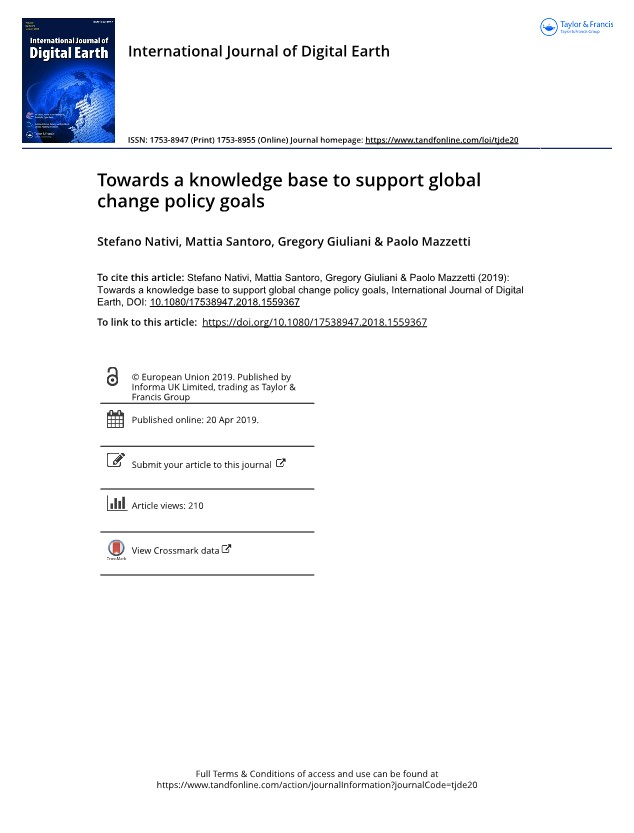Resource
Towards a knowledge base to support global change policy goals
Description
In 2015, it was adopted the 2030 Agenda for Sustainable Development to end poverty, protect the planet and ensure that all people enjoy peace and prosperity. The year after, 17 Sustainable Development Goals (SDGs) officially came into force. In 2015, GEO (Group on Earth Observation) declared to support the implementation of SDGs. The GEO Global Earth Observation System of Systems (GEOSS) required a change of paradigm, moving from a data-centric approach to a more knowledge-driven one. To this end, the GEO System-of-Systems (SoS) framework may refer to the well-known Data-Information-Knowledge-Wisdom (DIKW) paradigm. In the context of an Earth Observation (EO) SoS, a set of main elements are recognized as connecting links for generating knowledge from EO and non-EO data – e.g. social and economic datasets. These elements are: Essential Variables (EVs), Indicators and Indexes, Goals and Targets. Their generation and use requires the development of a SoS KB whose management process has evolved the GEOSS Software Ecosystem into a GEOSS Social Ecosystem. This includes: collect, formalize, publish, access, use, and update knowledge. ConnectinGEO project analysed the knowledge necessary to recognize, formalize, access, and use EVs. The analysis recognized GEOSS gaps providing recommendations on supporting global decision-making within and across different domains.